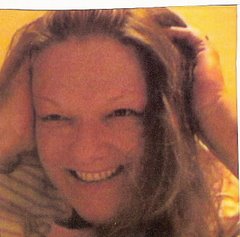Eckhart Tolle, author of A New Earth, explains how to break through the shell that separates you from your true self.
Vanity and pride are what most of us tend to think of when we think of ego, but ego is much more than an overinflated sense of self. It can also turn up in feelings of inferiority or self-hatred because ego is any image you have of yourself that gives you a sense of identity—and that identity derives from the things you tell yourself and the things other people have been saying about you that you've decided to accept as truth.
One way to think about ego is as a protective heavy shell, such as the kind some animals have, like a big beetle. This protective shell works like armor to cut you off from other people and the outside world. What I mean by shell is a sense of separation: Here's me and there's the rest of the universe and other people. The ego likes to emphasize the "otherness" of others.
This sense of separation is an intrinsic part of the ego. The ego loves to strengthen itself by complaining—either in thoughts or words—about other people, the situation you find yourself in, something that is happening right now but "shouldn't be," and even about yourself. For example, when you're in a long line at the supermarket, your mind might start complaining how slow the checkout person is, how he should be doing this or doing that, or he failed to do anything at all—including packing the bag of the person ahead of you correctly.
When this happens, the ego has you in its grip. You don't have thoughts; the thoughts have you—and if you want to be free, you have to understand that the voice in your head has created them and irritation and upset you feel is the emotional response to that voice Only in this way can you be present to the truer world around you and see the golden shade in a pound of pears on the scanner, or the delight of a child in line who begs to eat them.The trick, of course, is to work to free ourselves from this armor and from this voice that is dictating reality.
Observe Your Mind
The first foundational step is to become aware of what kind of thoughts you habitually think, especially negative thoughts: irritation, anger, impatience and perhaps even some kind of sadness. You might, for example, complain about yourself, how useless you are. If you start to hear these repetitive thoughts, then you will suddenly realize, "I've been thinking these same thoughts again and again almost every day without really knowing it."
Distinguish Between the Voice of Ego and the Actual Situation
Awareness is the beginning of becoming free of the ego because then you realize that your thoughts—and the negative emotions they produce—are dysfunctional and unnecessary. For example, let's go back to the supermarket line. As you stand waiting, you aren't actually irritated because it's taking a long time to get through to the checkout, which is the situation. You are irritated by what your mind is telling you about the situation—which is that all this waiting is bad and a waste of your time. But you could actually be enjoying that moment if you say, "This is simply what is. There's nothing I can do about it, so why not breathe in deeply and look around and enjoy the world around me?"
Let Go of Limiting Stories
Sometimes the danger is not even pessimistic thought. If, for instance, you have been let go from your job, you might so resist being negative that you say, "It's a great thing that I lost my job!" That kind of willful optimism is not necessary. We hold on to the fairy tale of supposed happiness—that we should be happy. But this keeps you stuck where you are. Instead, try to describe only what is happening, without judgment: I do not have a job. I must look for one.
Bring In Your Awareness
When you see the difference between your voice and the reality of the situation, that's the beginning of awakening. This is often a moment—a flash that sizzles and disappears. Initially you still lose yourself again, and the old thoughts arise, but gradually, you gain awareness, and the dysfunctional thoughts subside. It's a gradual transition, this bringing in of your awareness, because the ego doesn't want to change. It doesn't want to disappear, so it will give you plenty of reasons why you cannot be present.
Lay Down Your Weapons
Your challenge will be to become more aligned internally with the present moment. Fighting with your ego by will just makes it stronger. By declaring war on it, you make an enemy. A simple example: You wake up in the morning, and it's raining and gray, and the mind says, "What a miserable day," and this is not a pleasant thought. You likely feel some emotion: dread, disappointment, unhappiness. You suddenly realize that your judgment of what kind of day it will be is based on a mental habit, an unconscious default. That simple awareness creates space for a new thought to emerge. You can look again out the window without that preconception and just see the sky. It's gray. There's some sunlight filtering through the sky. There are, perhaps, raindrops falling. It's not actually miserable at all. It has a certain beauty. Then suddenly, you're free. You're no longer imposing something on reality, and you're free to enjoy what, previously, you had rejected.
To learn more about the ego, overcoming adversity and creating inner peace and meaning in your life visit EckhartTolleTV.com.
Tuesday, October 11, 2011
Subscribe to:
Comments (Atom)






